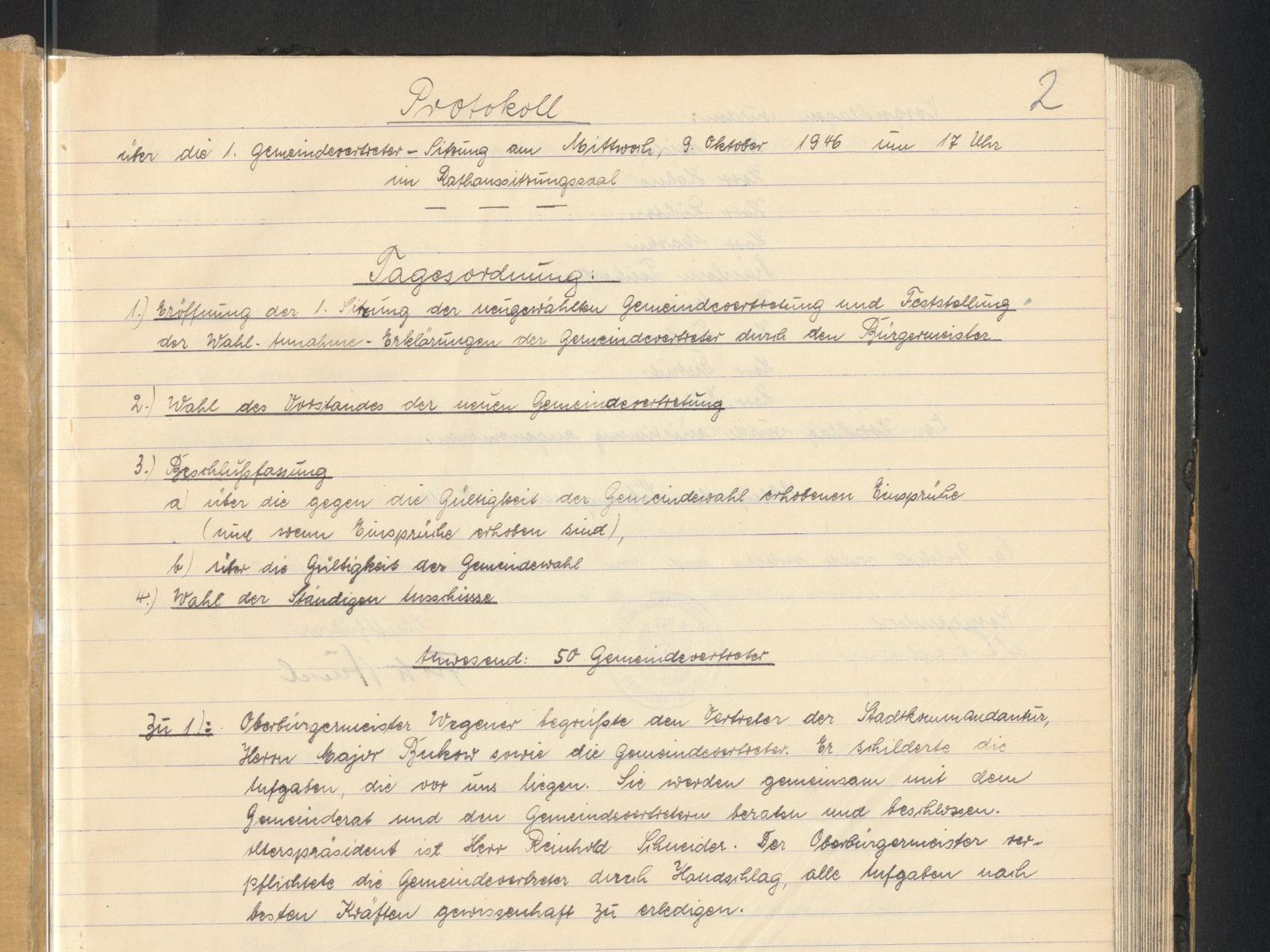
Frankfurt's new beginning in sources – The challenges facing the city administration after the end of the Second World War were enormous: a burnt-down city center, an evacuated population that was reluctant to return to Frankfurt, masses of prisoners of war, refugees and displaced persons, as well as an impaired economy and infrastructure. Added to this was the implementation of the orders of the Soviet military administration.
In the fall of 1945, a provisional magistrate was formed. One year later, the first constituent municipal council meeting took place on October 9, 1946, at whose second meeting on October 30, 1946, the magistrate was newly elected.
The first surviving council minutes of the provisional magistrate date from the 7th meeting on January 30, 1946. On the agenda were the Liberal Democratic Party's objection to being excluded from council meetings, the introduction of a cinema tax, the provision of surviving dependants of municipal employees, the fight against epidemics and the financing of healthcare facilities, particularly for soldiers, The council meetings dealt with the introduction of a cinema tax, the care of municipal employees, the fight against epidemics and the financing of health facilities, especially for soldiers, prisoners of war and resettlers, the construction of a cinema in Luisenstraße, the construction of the Oder bridge, the use of the barracks at Spitzkrug as accommodation for workers at the Finkenheerd mine and for new farmers, the increase in flour prices and the return of the residents of the Gursch'schen Gestift who had been evacuated to Freyenstein in Saxony. A resolution was passed on the state government's order on the monthly reports to be submitted to the population, as well as on the order of the supreme commander of the Red Army on the accommodation of the widow of the abdicated German emperor and Prussian king, Hermine of Prussia, in Frankfurt (Oder).
On October 9, 1946, Mayor Oskar Wegener welcomed the 50 elected municipal representatives and the representative of the Soviet city command, Major Buckow, to the first municipal council meeting. He introduced the tasks of the municipal administration, followed by the election of the board and committees. After the mayor, councillors and committee members had been elected at the second meeting on October 30, 1946, the third meeting focused on urban development. The CDU parliamentary group requested the establishment of an infant home in the Lutherstift and the conversion of the preacher's seminary into a makeshift hospital. The LDP parliamentary group requested a Christmas party for senior citizens and the demolition of the city center.
The minutes of the council meetings and the city council assembly are among the key sources of the city's history. They are part of the archive collection "Council of the City of Frankfurt (Oder) 1945–1952". The minutes have been digitized with funding from the Brandenburg Ministry of Science, Research and Culture and have been made available online together with the indexing information of the entire collection in the Archive Portal-D. The collection documents the structural, economic, social and cultural development of Frankfurt up to its restructuring as a district city in 1952.
